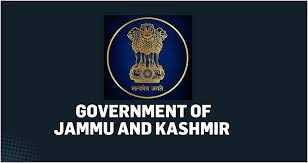
The government has constituted a high-level committee to examine and finalize modalities for revival of customary stone quarrying activities at Panthachowk in Srinagar and Saderkoot Bala in Bandipora Bandipora and other locations.
Headed by the Special Secretary to the Government, Mining Department, the panel includes representatives from the Forest, Revenue, Jal Shakti, Rural Development, Geology & Mining, University of Kashmir and J&K Pollution Control Committee.
The committee has been tasked with studying the legal framework, assessing environmental implications, exploring administrative mechanisms, and suggesting sustainable and community-sensitive modalities for quarrying operations.
The committee has been directed to submit a detailed report with recommendations within 30 days.
Stone quarrying in Panthachowk and other areas have traditionally supported livelihoods for hundreds of families, while also supplying essential material for infrastructure projects.
However, concerns over illegal extraction, deforestation, and damage to riverbeds prompted authorities to suspend operations in several sites over the past decade.
The restrictions, while aimed at protecting the environment, have also left thousands of labourers without steady income and led to an increase in dependence on imported construction material, which raises costs for both contractors and common people.
The environmentalists, however, have opposed revival of the stone quarries at Pantha Chowk and other populated places saying the pollution caused by it affects the health of the population living in the areas.
The government has constituted a high-level committee to examine and finalize modalities for revival of customary stone quarrying activities at Panthachowk in Srinagar and Saderkoot Bala in Bandipora Bandipora and other locations.
Headed by the Special Secretary to the Government, Mining Department, the panel includes representatives from the Forest, Revenue, Jal Shakti, Rural Development, Geology & Mining, University of Kashmir and J&K Pollution Control Committee.
The committee has been tasked with studying the legal framework, assessing environmental implications, exploring administrative mechanisms, and suggesting sustainable and community-sensitive modalities for quarrying operations.
The committee has been directed to submit a detailed report with recommendations within 30 days.
Stone quarrying in Panthachowk and other areas have traditionally supported livelihoods for hundreds of families, while also supplying essential material for infrastructure projects.
However, concerns over illegal extraction, deforestation, and damage to riverbeds prompted authorities to suspend operations in several sites over the past decade.
The restrictions, while aimed at protecting the environment, have also left thousands of labourers without steady income and led to an increase in dependence on imported construction material, which raises costs for both contractors and common people.
The environmentalists, however, have opposed revival of the stone quarries at Pantha Chowk and other populated places saying the pollution caused by it affects the health of the population living in the areas.
© Copyright 2023 brighterkashmir.com All Rights Reserved. Quantum Technologies